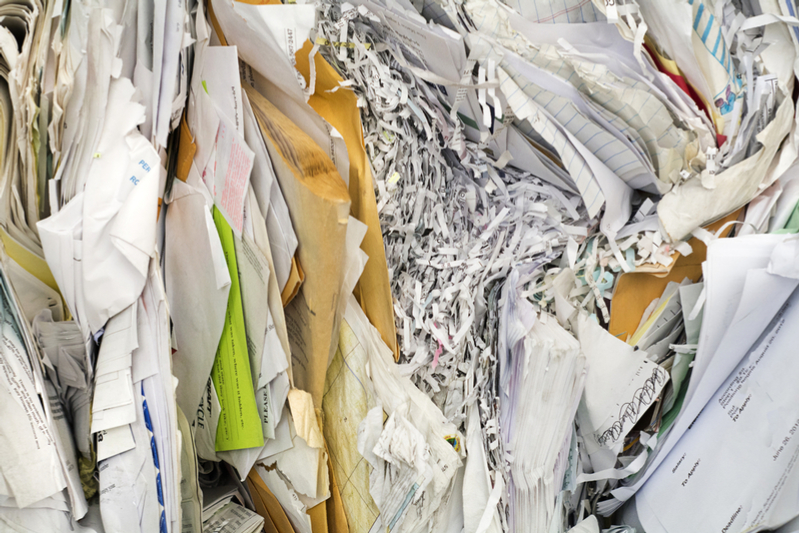Waste Management in Summer - A Complete 2022 Guide

Summer is a happy time for most people in the UK - from BBQs and picnics to beach days and international football.
There is one area, however, where summer is less of a welcome arrival - and that’s commercial waste disposal.
In many ways, this is the most urgent and difficult time of the year when it comes to effectively managing waste. But why, and what can you do to make things run more smoothly?
Let’s take a look, but first the basics:
What is Waste Management?
Waste management is simply the process a company uses to sort, separate, remove, and recycle or dispose of waste. Like any other company process, a strategy is necessary to ensure this is done efficiently, safely, and in a way that minimises damage to the environment.
While some companies may already have a strategy in place, it is crucial to revisit and improve these as regulations and the types of waste produced change over time.
On the other hand, companies can hire professional commercial waste management companies such as phs WasteKit to take this issue off their hands and save money.
Preparing for Summer
It is always important for companies of any size to carry out a regular waste audit. This will evaluate the waste produced by the company, identify ways to reduce waste production, and ensure the disposal procedures are as sustainable and efficient as possible.
Performing one regularly will therefore save costs, improve safety, and reduce environmental impact.
When it comes to summer, they are especially important. From glass bottles and cups at hospitality events, pubs and outdoor festivals, to increased sports events, and even things like lateral flow tests - the production of many types of waste increases dramatically in the summertime.
UK legislation states that companies must first prioritise doing all they can to reduce waste - then find ways to reuse, and recycle, and only send to landfill as an absolute last resort.
As a result, your first action regarding summer waste should be to find ways to minimise waste production - for example focusing on reusable items rather than disposable ones when ordering new stock, or finding ways to go without certain items entirely, especially if those items have caused large amounts of waste in previous years.
A highly effective example is Bluestone National Park in Bluestone. In previous years, the park had offered water bottles for sale to visitors, however, this was found to cause a large amount of dropped litter within the park. As of summer 2021, the park announced they would no longer sell water bottles - and would instead offer free water fountains, encouraging visitors to bring their own refillable containers. The strategy is expecting to reduce the amount of waste the park produces by over 25,000 bottles per year.
Outdoor events can also find ways to reuse objects that would otherwise become waste - turning wine bottles in candle holders, or designing menus around accommodating leftovers or locally grown foods to reduce both food waste and the amount of packaging required.
Taking such steps to reduce or reuse waste, while also ensuring any remaining waste is recycled where possible, will have a significant impact on the environment. However, while such activities may cost money at first, due to landfill taxes, excess weight charges, and similar - it will save money in the long term too, making it a no-brainer decision for any company producing waste.
Another crucial part of waste management during the summer is bin hygiene. It can be easy to overlook such issues in the winter when they remain relatively minor. However, hot weather can increase the smell of rubbish bins, attract flies, accelerate decomposition, and have other effects that can reduce safety and customer satisfaction, while also increasing the urgency around proper regular disposal.
phs WasteKit
From wastesaving audits, to maintenance plans and
spare parts, and from rental to sales, phs WasteKit is the UK’s favourite provider of waste balers, compactors, and other commercial waste disposal solutions.
Every year we help our customers save hundreds of thousands of tonnes of waste and reduce their carbon impact by baling recyclable waste and compacting general waste. We help businesses become more sustainable by creating cost-effective waste streams.
One of our large retail customers saves over 160,000 tonnes of cardboard and 70 tonnes of plastic every year using our equipment. We have brought in a range of baling machines that are 40% more energy efficient too, reducing energy costs for our customers, as well as being better for the environment. These newer, more reliable machines have also reduced the need for maintenance call-outs, saving fuel and reducing our overall mileage.
To find out more about our range of products, or to discuss your company’s requirements with one of our consultants, contact us now!